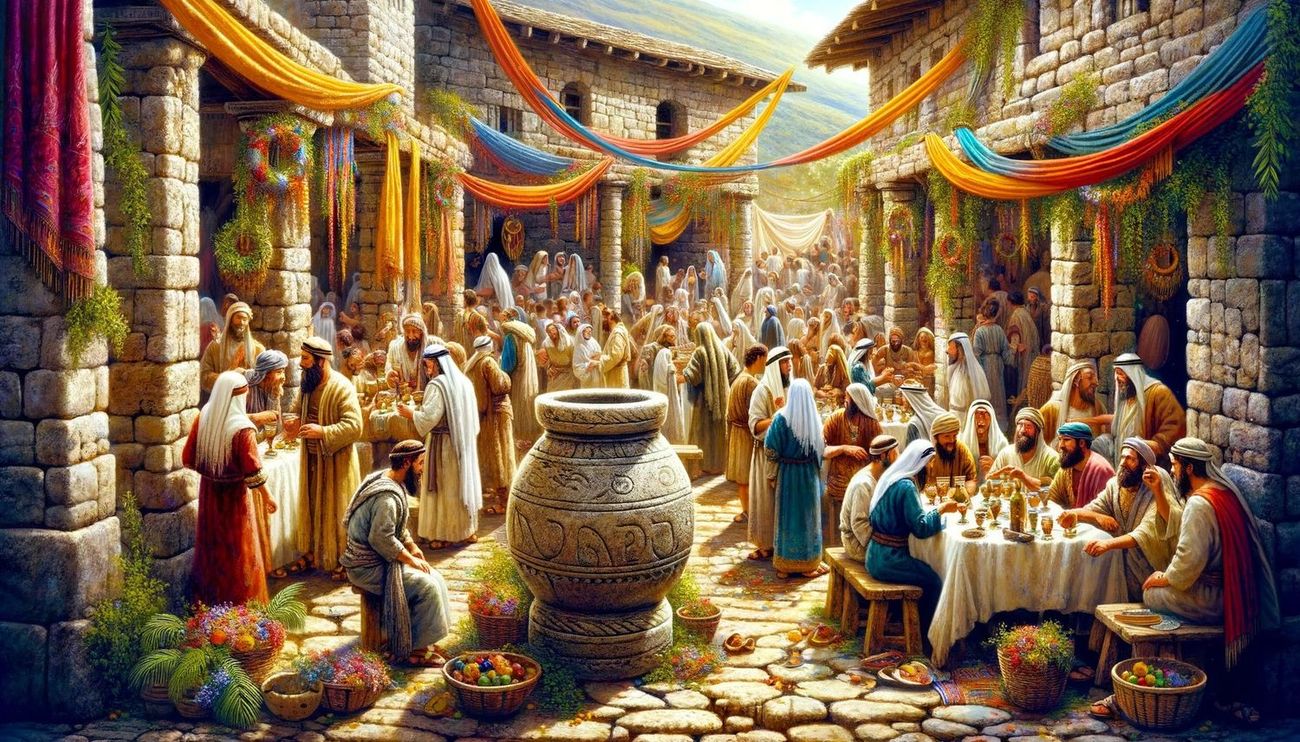Home>Christian Videos>Bible Stories>Which Gospels Mention The Rich Young Man


Bible Stories
Which Gospels Mention The Rich Young Man
Published: March 7, 2024
Ericka Andersen, an editor at Christian.net, expertly merges digital strategy with content creation, focusing on faith and societal issues. Her communication skills enhance the platform's engaging narratives, fostering meaningful dialogue on belief's impact on society.
Discover which gospels mention the rich young man in the Bible stories. Explore the significance of this parable and its teachings. Gain insights into the biblical narrative.
(Many of the links in this article redirect to a specific reviewed product. Your purchase of these products through affiliate links helps to generate commission for Christian.net, at no extra cost. Learn more)
Table of Contents
Introduction
The story of the Rich Young Man is a well-known passage in the New Testament that appears in the Gospels of Matthew, Mark, and Luke. This narrative revolves around a wealthy young man who approaches Jesus and asks what he must do to inherit eternal life. Each Gospel provides a unique perspective on this encounter, shedding light on different aspects of the interaction and the teachings of Jesus. In this article, we will explore which Gospels mention the Rich Young Man and delve into the distinct nuances of each account.
Read more: Which Gospels Do Not Mention Jesus’ Birth
The Gospel of Matthew
In the Gospel of Matthew, the story of the Rich Young Man is found in Chapter 19, verses 16-30. This account begins with the young man approaching Jesus and inquiring about the path to eternal life. In response, Jesus instructs him to keep the commandments. The young man claims to have followed these commandments since his youth and seeks further guidance. Jesus then challenges him to sell his possessions, give to the poor, and follow him. The young man, who is very wealthy, becomes sorrowful at this directive, as he is not willing to part with his abundant possessions. This narrative in Matthew emphasizes the theme of wealth and the challenges it poses to spiritual attainment. It underscores the idea that the love of material wealth can hinder one's commitment to following Jesus and living a life of true discipleship.
- Jesus emphasizes the importance of following the commandments as a foundation for spiritual life.
- The narrative highlights the potential conflict between material wealth and spiritual devotion.
- The call to sell possessions and give to the poor underscores the radical nature of Jesus' teachings on wealth and discipleship.
This Gospel provides a thought-provoking perspective on the encounter between Jesus and the Rich Young Man, offering valuable insights into the complexities of wealth and spiritual commitment.
The Gospel of Mark
In the Gospel of Mark, the story of the Rich Young Man is recounted in Chapter 10, verses 17-31. This narrative begins with the young man running up to Jesus and kneeling before him, demonstrating a sense of urgency and reverence. He asks Jesus what he must do to inherit eternal life, to which Jesus responds by advising him to keep the commandments. The young man asserts that he has observed these commandments since his youth. Mark's account then depicts Jesus looking at the young man and loving him, before urging him to sell his possessions, give to the poor, and follow him. The young man's reaction to this directive mirrors that of the account in Matthew, as he becomes crestfallen at the prospect of parting with his wealth. This narrative in Mark emphasizes the significance of genuine commitment and sacrifice in following Jesus. It underscores the radical nature of Jesus' call to discipleship and the challenges posed by material wealth.
- Jesus expresses love for the young man, highlighting the compassion and care inherent in his teachings.
- The emphasis on selling possessions and giving to the poor underscores the theme of sacrificial commitment in discipleship.
- Mark's account portrays the urgency and sincerity of the young man's quest for eternal life, adding depth to the narrative.
Mark's Gospel provides a poignant portrayal of the encounter between Jesus and the Rich Young Man, offering a unique perspective on the themes of commitment, sacrifice, and the challenges posed by material wealth in the pursuit of spiritual fulfillment.
The Gospel of Luke
In the Gospel of Luke, the story of the Rich Young Man is presented in Chapter 18, verses 18-30. This account begins with a ruler questioning Jesus about inheriting eternal life. Unlike the other Gospels, Luke refers to the man as a ruler, indicating his position of authority and influence. Jesus responds by advising him to keep the commandments, to which the ruler claims to have upheld since his youth. Jesus then challenges him to sell all his possessions, distribute the proceeds to the poor, and follow him. The ruler becomes greatly distressed by this directive, as he is exceedingly rich. Luke's narrative emphasizes the theme of wealth and its potential to hinder one's spiritual commitment. It underscores the radical nature of Jesus' call to discipleship and the challenges posed by material possessions.
- Jesus' interaction with the ruler highlights the significance of upholding the commandments as a foundation for spiritual life.
- The portrayal of the ruler as a wealthy and influential figure adds a distinct dimension to the narrative, shedding light on the complexities of wealth and spiritual devotion.
- The call to sell possessions and follow Jesus underscores the radical nature of discipleship and the sacrifices it entails.
Luke's Gospel offers a compelling perspective on the encounter between Jesus and the Rich Young Man, providing valuable insights into the complexities of wealth, spiritual commitment, and the radical nature of discipleship.
The Gospel of John
In the Gospel of John, the story of the Rich Young Man is not explicitly mentioned. However, the themes of wealth, spiritual devotion, and the challenges of material possessions are addressed in various passages throughout the Gospel. John's account focuses on the teachings and ministry of Jesus, emphasizing the concept of eternal life and the transformative power of faith. While the specific encounter between Jesus and the Rich Young Man is absent in John's Gospel, the overarching themes of wealth, discipleship, and spiritual commitment are intricately woven into the fabric of John's narrative.
- John's Gospel emphasizes the transformative power of faith and the eternal life offered through belief in Jesus.
- The themes of wealth and material possessions are addressed in the encounters with individuals such as Nicodemus, who was a wealthy Pharisee, and the account of the rich man who approached Jesus seeking guidance on attaining eternal life.
- John's Gospel underscores the radical nature of discipleship and the challenges posed by worldly attachments, aligning with the themes present in the accounts of the Rich Young Man in the other Gospels.
While the specific story of the Rich Young Man is not recounted in the Gospel of John, the broader themes of wealth, spiritual commitment, and the radical call to discipleship are interwoven throughout the narrative, offering a unique perspective on the teachings of Jesus and the challenges inherent in the pursuit of eternal life.
Read more: 15 Sick Man’s Prayers
Conclusion
The story of the Rich Young Man is a compelling narrative that is intricately woven into the Gospels of Matthew, Mark, and Luke, each offering a unique perspective on the encounter between Jesus and the wealthy seeker of eternal life. These accounts emphasize the challenges posed by material wealth and the radical nature of Jesus' call to discipleship. While the Gospel of John does not explicitly mention the Rich Young Man, it addresses the overarching themes of wealth, spiritual commitment, and the transformative power of faith. Collectively, these Gospels provide valuable insights into the complexities of wealth, the demands of discipleship, and the profound teachings of Jesus on the pursuit of eternal life. The diverse portrayals of this encounter enrich our understanding of the multifaceted nature of spiritual devotion and the challenges posed by worldly attachments, inviting contemplation and reflection on the timeless wisdom imparted through these narratives.














